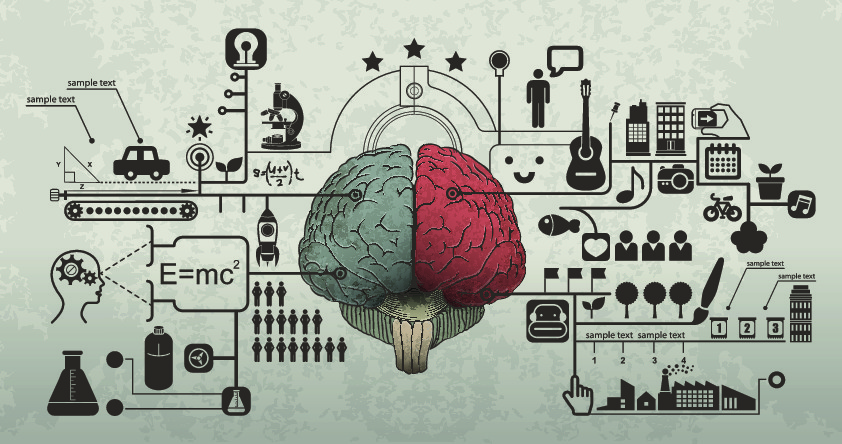A PhD in Educational Psychology offers individuals a unique opportunity to make a profound impact in the field of education. With the acquired knowledge and expertise, professionals can contribute to the understanding and improvement of educational practices, policies, and outcomes. Through rigorous research, effective interventions, and innovative approaches, those with a PhD in Educational Psychology can pave the way for transformative change in the educational landscape. In this article, we will explore the various ways in which a PhD in Educational Psychology empowers individuals to make a difference and create positive educational experiences for learners.
Table of Contents
The Foundation of Knowledge
A solid foundation of knowledge is one of the key benefits of pursuing a PhD in Educational Psychology. Through comprehensive coursework, research, and hands-on experiences, individuals develop a deep understanding of the psychological principles that underlie learning, motivation, and development. The program equips them with a broad range of skills, including advanced statistical analysis, research design, and assessment techniques. With this extensive knowledge base, graduates of a PhD program in Educational Psychology become well-prepared to tackle complex issues in education and propose evidence-based solutions.
Advancing Educational Practices
A PhD in Educational Psychology empowers professionals to advance educational practices through research and evidence-based interventions. By conducting rigorous studies and evaluations, graduates can identify the most effective teaching strategies, instructional approaches, and assessment methods. Their expertise allows them to bridge the gap between theory and practice, translating research findings into practical recommendations for educators and policymakers. Whether it involves designing interventions for struggling learners, promoting inclusive classroom environments, or enhancing educational technology, individuals with a PhD in Educational Psychology have the tools to shape and improve educational practices.
Influencing Educational Policies
Educational policies play a crucial role in shaping the educational system. With a PhD in Educational Psychology, professionals can contribute their expertise to the development and implementation of policies that promote equitable and inclusive education. By analyzing research data, conducting policy evaluations, and advocating for evidence-based practices, graduates can influence policy decisions at various levels, from local to national. Their input can help ensure that policies align with the best interests of learners, address educational disparities, and support the holistic development of students.
Fostering Positive Learning Environments
Creating positive and supportive learning environments is essential for students’ academic success and well-being. With their in-depth knowledge of educational psychology, PhD holders can contribute to the development of inclusive and nurturing learning environments. They can provide guidance to educators on fostering positive teacher-student relationships, promoting social-emotional learning, and implementing effective behavior management strategies. By incorporating principles of educational psychology into classroom practices, professionals can create environments that cater to diverse learners and optimize their learning experiences.
Enhancing Student Well-being
A PhD in Educational Psychology equips professionals with the tools to address the social, emotional, and mental well-being of students. By conducting research and implementing evidence-based interventions, individuals can contribute to enhancing students’ overall well-being. They can develop programs that focus on promoting positive mental health, preventing and addressing bullying, and fostering resilience in students. By collaborating with schools, parents, and communities, graduates of a PhD program in Educational Psychology can make a tangible difference in the lives of students, supporting their holistic development and creating a foundation for lifelong success.
Driving Research and Innovation
As researchers, individuals with a PhD in Educational Psychology have the opportunity to drive innovation in the field. By conducting original studies, they can expand the existing knowledge base and explore new avenues in educational psychology. Their research can shed light on emerging issues, identify trends, and offer insights into effective educational practices. Through collaborations with other researchers and practitioners, they can contribute to the collective effort of advancing the field, shaping the future of education, and making a lasting impact.
Consulting and Training
Professionals with a PhD in Educational Psychology can provide valuable consulting and training services to educational institutions, organizations, and communities. Their expertise can be utilized to develop professional development programs for educators, helping them implement evidence-based strategies and interventions. They can also offer guidance to educational leaders in decision-making processes, data analysis, and program evaluation. By providing consultation and training, PhD holders in Educational Psychology can ensure that educational practices are continuously evolving to meet the needs of learners and are grounded in research and best practices.
Advocating for Equity and Inclusion
Promoting equity and inclusion in education is a vital goal. With a PhD in Educational Psychology, individuals are equipped to advocate for equitable educational opportunities and address systemic barriers. They can contribute to initiatives that focus on reducing educational disparities, supporting marginalized populations, and promoting diversity in classrooms. By engaging in research, policy advocacy, and community outreach, professionals with a PhD in Educational Psychology can work towards creating an inclusive educational system that values and celebrates the diversity of learners.
Conclusion – phd in educational psychology
A PhD in Educational Psychology offers professionals a unique opportunity to make a difference in the field of education. Through advanced knowledge, research, and innovative practices, individuals can contribute to improving educational outcomes, creating inclusive learning environments, and advocating for equitable policies. Whether it involves advancing educational practices, fostering positive learning environments, or driving research and innovation, those with a PhD in Educational Psychology have the potential to shape the future of education and positively impact the lives of learners. By leveraging their expertise and collaborating with stakeholders, these professionals can make a lasting difference and pave the way for a more equitable and effective educational system.
Learn about: Gain financial clarity by exploring the essential steps in the accounting cycle—master the process and ensure accurate financial records.









